“Don’t Worry Darling is my love letter to the movies that push the boundaries of our imagination”: Oliva Wilde, Harry Styles and Florence Pugh on the psychological thriller presented in Venice
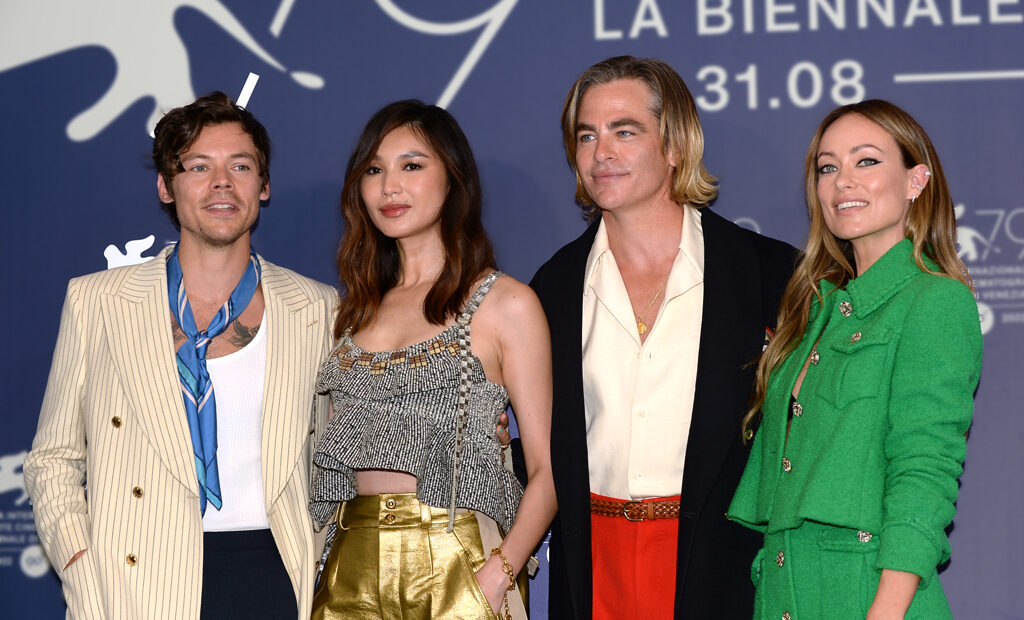
In Olivia Wilde’s new feature, Don’t Worry Darling, Alice and Jack live in the idealised community of Victory, an experimental company town housing the men who work for the top-secret project. The 1950s societal optimism espoused by their CEO, Frank (Pine) – equal parts corporate visionary and motivational life coach – anchors every aspect of daily life in the tight-knit desert utopia. While the husbands spend every day inside the company’s headquarters, working on the “development of progressive materials”, their wives get to spend their time enjoying the beauty, luxury and debauchery of their community. Life is perfect, with every resident’s needs met by Victory. But when cracks in Alice’s idyllic life begin to appear, flashes of something much more sinister lurking beneath the attractive façade are exposed. The three stars of the film, Harry Styles (as Jack), Florence Pugh (as Alice) and Olivia Wilde (directing and also playing playing Alice’s best friend, Bunny) talk about working on Don’t Worry Darling, which premieres this week at the Venice Film Festival.
Olivia Wilde: This psychological thriller is my love letter to the movies that push the boundaries of our imagination. Imagine a life where you had everything you ever wanted – and not just the material or tangible things, like a beautiful house, gorgeous cars, delicious food, endless parties, but the things that really matter like true love with the perfect partner, and the best friends and a purpose that feels meaningful. What would it take for you to give that up? What are you willing to sacrifice in order to do what’s right? Are you willing to dismantle the system that is designed to serve you? What if your only choice is really no choice at all? That’s the world, and the question, of Don’t Worry Darling.
I was really intrigued by the overarching concept behind Don’t Worry Darling – what does it take for someone to do the right thing, despite the massive sacrifice at hand? More specifically, the idea of someone living in a society, designed entirely for their comfort, only to discover that that society is corrupt. Can you be the one to recognise that it’s inherently wrong and should be dismantled? As a filmmaker, I was drawn to this original story featuring a heroine who is brilliant, nuanced and complex.
We dived in and started stripping away the world, down to the very core questions that we found the most compelling. At the heart was: what if you had a life that was, in fact, idealised? Why would you take apart such a comfortable life? That’s really what we all need to be asking ourselves. It seems like very few people in history have made that decision, and yet it’s those people who are really the ones who can make the most difference. So, the themes we were working with were the idea of real courage – what it actually means to be an independent thinker, and to be able to identify flaws in a system that serves you. But also, this movie is a romance. We wanted to tell a story of a love that was deep and authentic – if potentially damaged – but was so real and pure that the audience would find themselves swept away by it, despite their better judgment. As an audience member, I think it’s fun and interesting to feel conflicted – where you know that something is wrong, but your heart is so empathetically connected to the characters that you can understand why they’re putting themselves in this situation.
We thought we could have so much fun with the wish fulfilment aspect of this world. I mean, world creation is perhaps the best part about being a director. When you pull in your team – the production designer, DP, costume designer, hair and makeup, and, finally, your actors – you create this environment. We really set out to build a world so wonderful that no one in their right mind would think of destroying it… and then create a character who contemplates doing just that.
Florence Pugh: Victory is perfection. Victory is when you are young and you close your eyes, and you imagine the best possible life for yourself. How do you imagine it? You imagine it by palm trees; you imagine it by the pool; you imagine it with a cocktail in your hand, and you looking amazing all the time. That is what I see Victory as. Everything is heightened, and everything is perfect.
About the casting and characters
OW: At the heart of our movie is Alice Chambers, played by Florence Pugh, and she is a character who is so full of intellect, love and warmth that she is impossible not to connect with. She’s someone that you, as the audience, empathise with and root for, I think from the first moment. And we meet this character in this incredibly happy moment in her life, just at the point where she starts to question some of the mysteries around her. And then what we discover is that she is also ferociously brave. She is so willing to put herself on the line that we become swept away by her commitment to finding out answers.
There’s something about Florence that is just so smart – the way she questions and considers everything. I thought, “That’s the quality we need for Alice.” Once I spoke to Florence about taking on Alice, I thought, “Now, everything starts from this, everything starts from her instincts.’” Everything else became really clear – who we were going to surround her with came into focus, based on what she was going to create. The conversations were all about how this woman needed to be everything except the kind of 1950s housewife – how it had to feel organic. You didn’t want to, for a second, question whether or not she was real or the world was real. And how the relationship between Alice and Jack had to be deeply passionate and feel really contemporary, in a sense – equal.
FP: I’d say the difference between Alice and the other wives is that she’s not as tied up… not as “straight”, I suppose. I think it’s because of the relationship that Jack gives her: she’s able to be her own person, wear her own clothes, be a little more relaxed, more sensual, more sexual. Their relationship is different, and he allows her to be essentially more modern. Everything about her is more relaxed – the way that she moves, the way she dances through her day, the fact that she wears lingerie to say goodbye to him in the morning. The wives love tending to their men. I think playing this role wouldn’t have been half as interesting if Alice and these women hadn’t been committed in their lives. They genuinely love cleaning the house and making sure everything’s perfect. That makes for an interesting character. Everything about her is trying to enjoy as much of what she has in front of her without being so uptight – it’s also that she enjoys it.”
OW: Casting Jack [Harry Styles] was really tricky, because we wanted to find someone who would be a worthy scene partner to Florence. We also wanted someone who wasn’t what we might typically identify as a 1950s traditional man; we wanted their relationship to seem singular, that he wasn’t a stereotypical “master of the house”, that their love seemed genuine, authentic and warm – you’d immediately recognise it to be special within Victory. Jack and Alice are different. [Watching Dunkirk] I thought [about Styles]: here was someone who has tremendous presence, intelligence and, honestly, fearlessness.”
Harry Styles: Jack Chambers is a husband. He loves his wife, and he wants to go to work and then come home and hang out with Alice. In that way, he’s pretty run-of-the-mill – it’s the very traditional stereotype of an old-school, perfect marriage. While he works, she’s at home, cleaning and cooking. But he loves his wife more than anything in the world. I think they’re obsessed with each other. It’s kind of an “us against the world” relationship.
Victory represents the sheltered kind of life that allows you to stay in your ultimate comfort zone. You can ignore all the problems in the world, and some people are ok with that. I think, for everyone, it’s a safe, easy, comfortable little bubble; they think everything’s perfect, but the world isn’t like that – it has consequences. People inside those kind of bubbles, they don’t want to know about the consequences. I think that’s what Victory represents: a willingness to be ignorant to the rest of the world.
OW: Once we had our Alice and Jack, it really became their movie… to bring this relationship that was the point of the whole film. Florence and Harry worked together to create this incredibly authentic, warm, nuanced human relationship and bring it to the screen. Then it became about who we were going to surround them with. I think that, along the lines of wanting to disarm the audience with humour and to make the world seem as organic as possible, I wanted to give Alice a friend to bounce her energy off, and that would allow for another really authentic relationship to exist on-screen.
At the core of everything, it is Jack and Alice, but the other kind of love story is Alice and Bunny [played by Wilde]. I’m endlessly fascinated by female friendship and all its intricacies, specifically within a community like Victory; the women spend most of their time together, because the men are off at work all the time. Bunny is a character who really indulges in the community, and has bought into Victory completely. Her husband, Dean, is a devout follower of [Victory’s leader] Frank, and he’s sycophantic and deferential around Frank, and Bunny’s the same. It was a fun character to create, and really fun to play because I have such good actors to play with. It was lucky that Bunny, as a character, is written to be quite bossy, because we’d be in the middle of the scene and I’d say, “Move over, move over”. And it would work for Bunny or me breaking character as the director. I’d pull people, move them over, tell them to say things again and I would think, “Yeah, that could be Bunny. She would do that!”. So yeah, it was a dream.
Going to Nick Kroll for the character of Dean was a real no-brainer for me. Nick is someone who is so smart and so funny, and he really understood the game we wanted to play. He helped to create this kind of Rat Pack energy that is so delicious and fun, funny and irreverent; he would catch the ball and throw it so effortlessly.
I had seen KiKi Layne’s [who plays Margaret] work and I was just really blown away by her vulnerability. She has an old-soul innocence, a stillness that I think is really difficult to achieve, and it works wonderfully in the role.
The characters of Violet [Sydney Chandler] and Bill [Nick Kroll] are important, as the newest members of the Victory community. For Violet, there’s kind of a bemusement, like someone on the edge of remembering a dream. Although she’s lovely, warm and present, there’s something that doesn’t quite feel right to her that keeps her on-edge. Sydney had incredible warmth and vulnerability in her submission.
Frank [Chris Pine] was just such a delicious character to devise because he is so charming. We wanted him to be someone you just couldn’t help but listen to, someone who had such a handle on language and could really hold an audience. When I think of actors with great voices, one of the first people I think of is Chris Pine. He also has that kind of terrifying quiet power – you know they say that the most powerful people never have to raise their voice. I also loved the idea of Chris being able to embody a character that wasn’t the ideal dream man, someone with a little bit of an edge. Chris himself is so intelligent that I knew he would understand exactly what made Frank tick. He was so good at creating the intricate details of the character, and it was so fun to put it together with him.
Chris Pine: Don’t Worry Darling’is a psychological thriller and a throwback to great films from the 60s and the 70s. It was a fantastic read. For me, what was more difficult and interesting is that I had to find a way into a character whom you may disagree with, but you have to make sense of him in a way that at least makes sense enough to you as the actor. So when I’m portraying him, I’m not judging him. What I found is that he talks about a lot of things that are meaningful to me. The idea of chaos and structure – I have compassion for trying to navigate the relationship between those two things in life. I think those are the two components that human beings struggle with.
I tried to find things that resonated with me that I could talk about passionately and then, hopefully, allow that to carry through those more difficult parts that I clearly don’t see eye-to-eye with the guy on. He’s a giant in the field, whatever that field is. There are allusions to the Manhattan Project – like they’re doing some big, dangerous world-building, world-protecting ventures, all these men. And people look at him like a god of sorts, or a prophet, poet, philosopher.
Gemma Chan: Shelley [played by Chan] and Frank, they’re quite the double act. They run the town. They are the “first couple”. Everyone looks up to them. Shelley is a complex woman, because she’s very strong, she’s very confident, she’s completely supportive of Frank – and he couldn’t do what he does without her – but she also has her own agenda as well.
Before we started filming, Olivia and I had a long chat about Shelley, and how we were both interested in women in a patriarchal system – women who uphold that system, whether they are aware of it or not. They gain a lot of power by supporting their husbands within a system like the one in Victory. I’m fascinated by the psyche and the kind of thinking behind that, for someone like Shelley, because she is also incredibly warm and gracious. She’s intelligent. But you wouldn’t want to cross her. Absolutely, you don’t want to cross Shelley.
OW: I was thrilled Gemma wanted to play Shelley, because she has this incredible presence, this elegance that is so regal. There’s no way for her to be in a scene and not carry power and significance – she has to do very little to hold that space in a room. And I really wanted to explore the themes of female participation in upholding the structures of the patriarchy. Gemma’s just brilliant, and I knew she would obviously have a firm grasp on the nuances of Shelley. But then, what she brought to it was this incredibly delicious, regal British power that was undeniably perfect for the role.
About the design
OW: I’ve always been really inspired by design from the late 50s and early 60s: the Rat Pack, Frank Sinatra, a life of post-war excess and debauchery seemingly without consequence. It’s so seductive, the idea of a time when life seemed to be defined by the idea of enjoyment and fun. And this world of mid-century Palm Springs is so fantasy-like. We pulled from so many different incredible architects and designers. Katie Byron, our production designer, and Matthew Libatique, my DP and partner in all of this, we wanted to create something that was so visually delicious that you would find yourself really drawn into it. The idea is for the audience to be lured into this world, so everything is about the pleasure of each element of it, the textures, the way that the colours come together. I had a print of Poolside Gossip on my wall when we were writing the movie, and I remember staring at it and thinking, “How could we possibly build a set that could feel anything like [architect] Richard Neutra’s iconic Kaufmann House?”. When we were location-scouting and drove to the house, I said something like, “Imagine if we could find something like that?” and Katie Byron said, “Why don’t we try to film there?”. No one had ever filmed there, and we wound up actually getting it – we were extremely lucky.
HS: Everyone who thinks back to that time thinks about how everything was so beautiful and elegant. But I think there was darkness then, as well. So, it’s another example of living with zero consequences – if you’re prepared to shut off the rest of the world, which is the life in Victory. It’s fun to play inside that aesthetic and live there… for a bit.
FP: Something we wanted with Alice’s wardrobe was for it to be a little off-kilter and different from the rest of the women. You’ll notice that lots of the housewives are wearing pastel colours and everything’s a bit sweet and perfect, but there’s something slightly off with Alice, whether it’s a sharp magenta or black. And there’s an hourglass shape and nice line, but she becomes more disheveled. It was so fun to be part of the creative process with Arianne.
CP: From my sense, there’s a Palm Springs/Hollywood 60s thing and then there’s a Côte d’Azur, Slim Aarons, summers-on-the-Amalfi-Coast thing. I said, “I see Frank in the vein of these boys, but he has to have his own schtick going on.” So, if he comes to a dinner party, he’s not wearing the tie. And if everyone else is wearing rayon, he’s wearing silk. If he’s at his house, he’s not wearing any shoes. Frank’s that loose, cool guy. He’s a little bit less rigid, less tied-up and skinny-tied. That was very important and very helpful for me to get into the mindset of the character. As for the women, it’s a glory of all things mid-century fashion. It’s a sight to behold.
OW: The costumes are as much a part of this world as the production design. Arianne’s work is extraordinary. I think when you’re making a period film about a period that people think they’re very familiar with, you have to create something really singular. I was passionate about this feeling somewhat unrecognisable. We had a very specific world we wanted to create, and the inspiration was clear. I wanted people who were excited about those same pieces of inspiration. Being able to make an original film like this, it’s a rare opportunity these days, and we wanted it to feel like a real love letter to film. So Katie, Arianne, Matty and I came together as a group of movie-lovers who got to play in this sandbox together.
About the filming phase
OW: The hardest thing for me was calling “Cut!” in character, especially when it was my closeup. I remember it was the first day, I was like, “…cut?”. I definitely got better at it over time. I got some good advice from filmmakers who’d done both before; one was that, as a director, your team, your crew, is your family, and my crew was unbelievable. Having Matty and Scott Sakamoto operating the camera, I had such a connection to them, as kind of my brain trust. To maintain that while also developing that relationship with actors, it felt like being multilingual, in a way. It was extremely challenging, but really fun. I admit it’s hard to direct in a tight wig and close-fitting 1950s clothing. I felt bad for the hair and makeup team – they were constantly trying to follow me to touch me up, and I never stopped moving. They got really good at working on the go, but it must have been frustrating for them. Matty had a list of days I wasn’t acting on-camera and said that those were the good days, because that was when I got to hang out with them in sweatpants.
I really wanted to work with Matty [Libatique] – one of my favourite collaborators and one of my favourite cinematographers – because he understands visual language so well, just the way the camera moves, having so much to do with the assumptions the audience is making and the tone created through cinematography. He’s creative and enthusiastic, and such a passionate storyteller.
HS: Florence is so talented, and it’s incredibly easy to work with her. She brings so much life to Alice. I’m a fan of her work, and I think any time you get to work with people who are really talented, you feel so lucky. With Alice, she brings a magnetism, and you like the character straight away, which is really important for the role. Florence doesn’t like doing things by halves and it was really fun getting to watch her work and learn from her.
FP: To come back together [with Chris Pine] again and play adversaries was so exciting. He’s an actor that I feel so safe with, no matter what I do. No matter what move I make, he’ll always bat it right back to me, and that is such an exciting feeling – when you’re totally safe with someone and they trust you just as much as you trust them.
OW: I’ve known Chris since being a young actor, and so, in a way, actors directing studio films now feels like the inmates have taken over the asylum. It was great to have someone along who knew me from the very beginning to say, “Look at us. We’re here now and we get to take the tools and play with them in the way we always wanted.”
I wanted this to be the scene where you see Frank in his full-blown ego and closest to his kind of hysteria. He deftly holds his audience and slowly creates a fervour, frothing them into this collective madness. It’s a very dark, specific kind of energy, and we looked at the party rallies in Germany in the 1930s and pulled some of our imagery from these actual rallies. And Chris Pine brought all of that energy with no one in the room because of Covid protocols. When the scene was finished, it’s a room full of hundreds of screaming people, but when we filmed, it was all in his mind. I was so amazed by Chris in that moment – it was one of many times that I took off my headphones in astonishment at what was being done. He’s unbelievable. I’ve always known he was amazing, but in this he is incredibly terrifying and brilliant, and also a supportive collaborator for me, which was wonderful.
GC: It’s a debauched affair. And Shelley has a present, or a surprise, for Frank, which is a beautiful burlesque performer doing a striptease and ending up naked in a martini glass, and she is played by the wonderful Dita Von Teese. What more could a man want? Or a woman? It was such a fun scene to film.
CP: The people are beautiful, Dita Von Teese is beautiful, the burlesque show is beautiful. People are having a great time. They’re shouting, they’re yelling, they’re clapping; they’re drinking, they’re festive. But underneath something so ostensibly cool and fun is this very real undercurrent of rage.
FP: Coming to a film like this is so exciting because there’s all of the sex appeal, the colours, the costumes and the cast, but it’s also intimidating, because everyone on this film has to deliver – and not just kind of deliver, but 100% deliver. And it’s been truly amazing and thrilling watching everyone do that, especially our talented and committed crew. They worked so hard during a difficult time with Covid, and under immense pressure, given the locations and tight schedule. They were genuinely the heartbeat that kept this film going. You have to have a lot of passion to want to keep on going, especially when the world around you is so troubled and chaotic.
OW: I knew that this film would be editorially really interesting and also challenging. I knew, while we were filming it, that there were elements of the story that were going to appear in different shapes than how we had written them. And the performances were just so staggering that I thought, “Oh, this is going to be hard, because I’m going to want every frame of this in there!”. And, ultimately, my editor, Affonso, he is such a good storyteller, a good partner and such a good listener when I ramble, “This is what it means, this is what it could be, this is what she’s feeling…” He took everything and found a way to allow for so many different nuances within a scene and to either mislead or help the audiences along. Ultimately, you want to keep audiences tugging on the end of the line, without giving them too much or too little. You have to find that balance, and he was invaluable for that process.
Then he said to me, “This movie is more romantic than you are letting it be. Let the score be something that sweeps our hearts away.” My choices for the temp score had been on the darker side, with some kind of demented sounds. He said that if we played with something more romantic, and used percussion to feel like some of the drum beats I had used, but as a heartbeat – by bringing in the world of the orchestra he made it much more emotionally impactful. This was my first experience being able to be with a composer conducting the orchestra, creating the score. I was overwhelmed with that moment, like a kid in a candy store.
HS: On top of the story, the performances, the amazing design, I think people are going to go through a lot of questioning, with an overall bigger question of: how do we choose to live? If the world is really in trouble, would it be that bad to live in our own perfect world, doing the things we want to do and ignoring the consequences of living that way? And what would ignoring those consequences bring?
What makes Don’t Worry Darling special?
FP: I think for me, it’s the fact that you’re completely swept up in this world. You totally feel like these are your people, just living in a heightened reality in the 1950s – I think you’re very quickly swept up in their lives, their relationships and their fun. And that’s where it catches you, so much so that when Alice is going through all of this, even she is shaking her head, trying to wake up and be perfect the next day. It kind of goes back to how much would you turn a blind eye to, even if your gut was telling you that something is wrong?
OW: The opportunity to experience a story with other people together, the collective movie watching experience, is so powerful, almost spiritual. And I think for Don’t Worry Darling, with everything from the casting to the design to cinematography, it was designed for that experience. Even though technology has isolated us in so many different ways, what we ultimately want is to connect with other human beings and I think a film like this, viewed in a collective setting, is a really singular experience, a really thrilling experience. It’s also designed for the kind of chemical reaction between audiences – people who don’t know each other, strangers who suddenly look around and kind of question their reality, maybe converse with each other about what the answer to the film is… and we love the idea of the “parking lot arguments”.
Ultimately, it’s just a really fun ride. Our goal was to take you to a completely different reality. I always say, “If you’re going to make a movie, you have a reason for making it a movie, not a play, not a book.” If it’s a film, play with the tools of filmmaking. And we think this film embraces that. We sought to create an experience unlike any audiences have had before, something fresh and new, out of respect for filmgoers who are now so fluent in the world of storytelling in all different forms. We wanted to make something that would really blow people’s minds.
The editorial unit
Don’t Worry Darling is released nationwide on 23rd September 2022.
Watch the trailer for Don’t Worry Darling here:

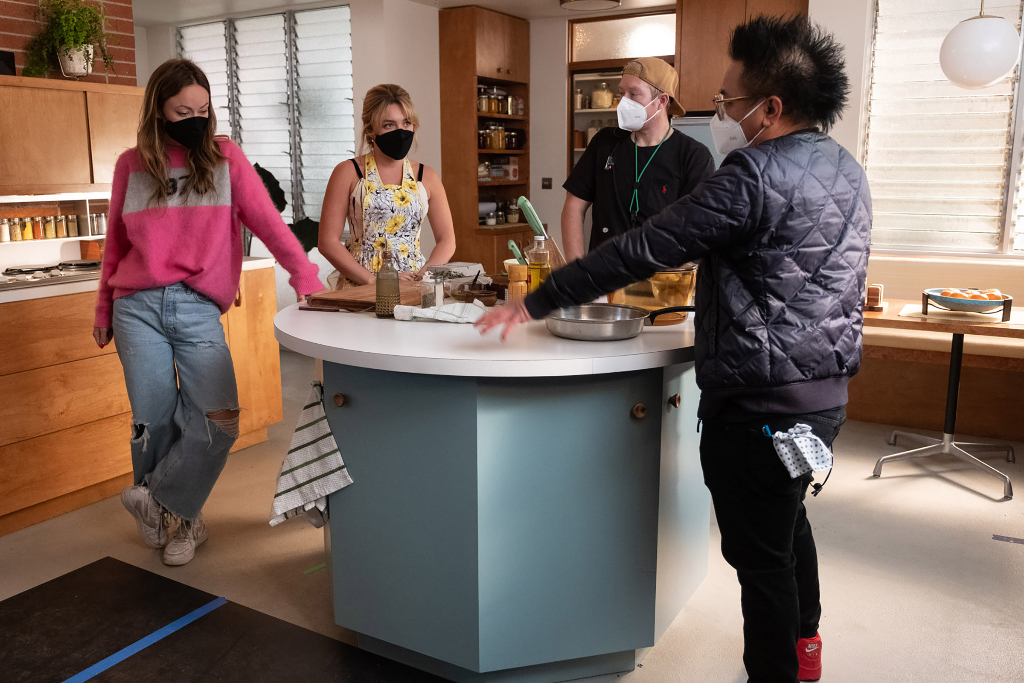
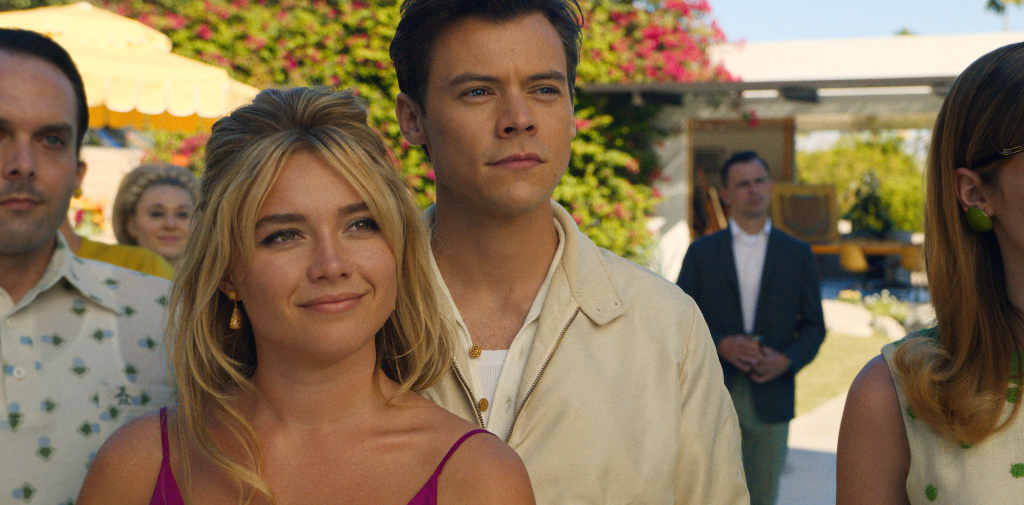
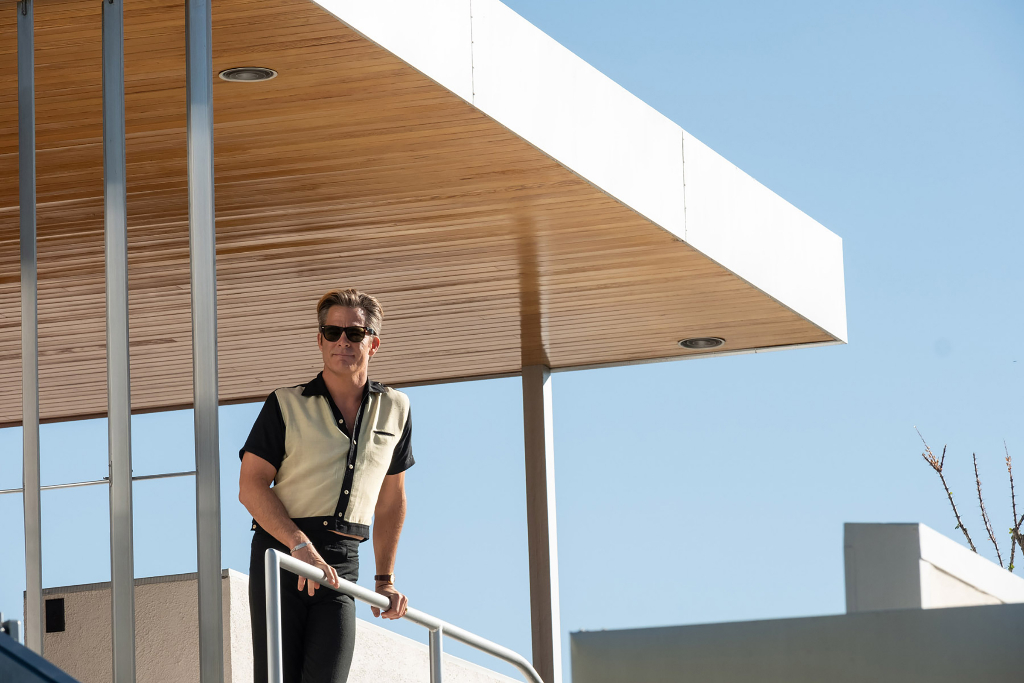
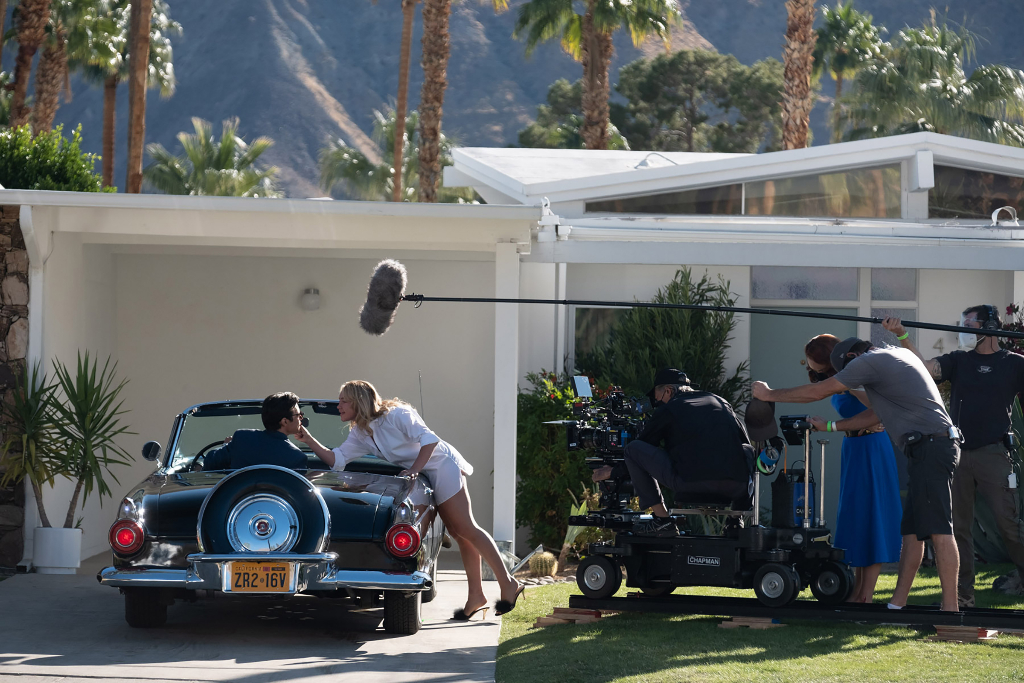
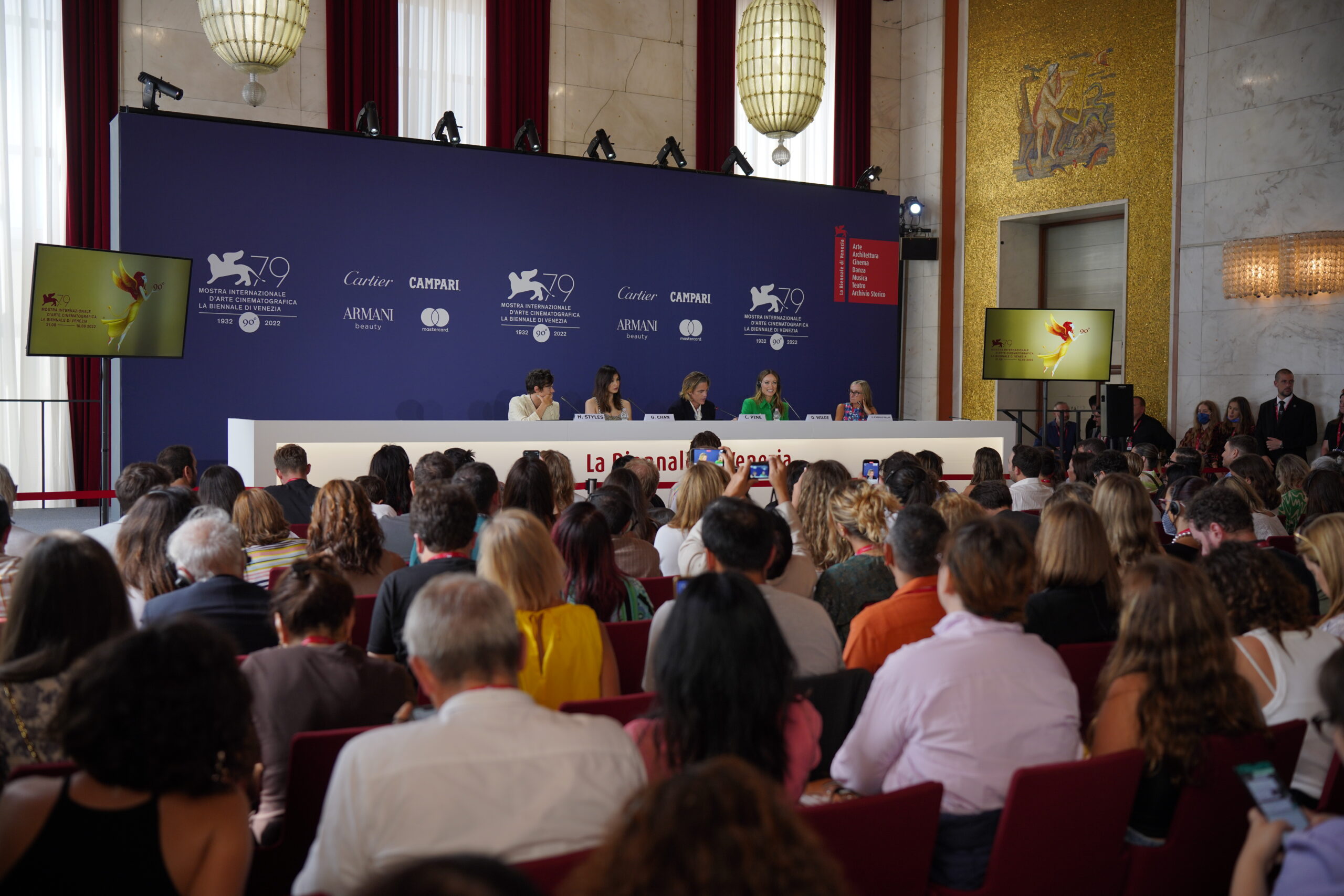


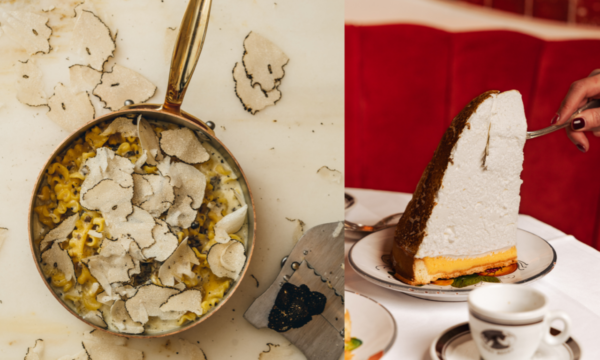
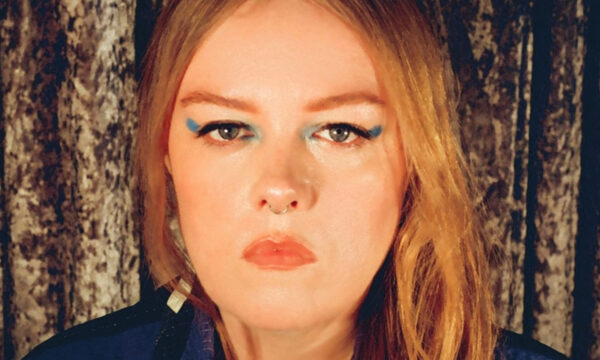


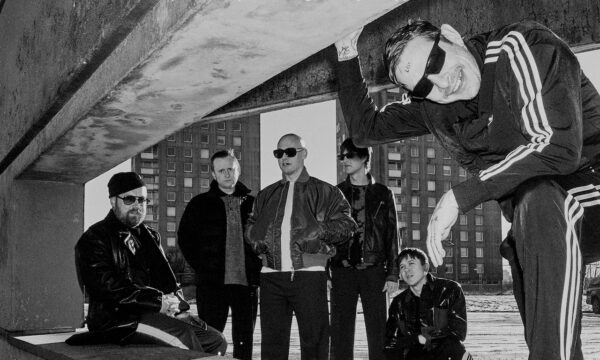
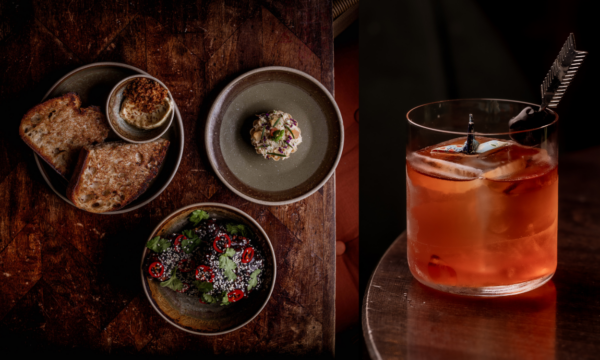
















Facebook
Twitter
Instagram
YouTube
RSS